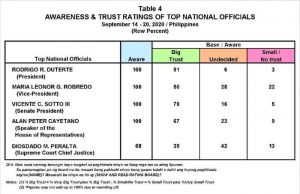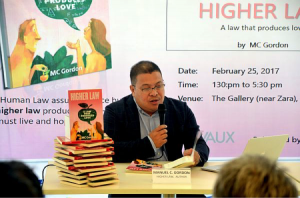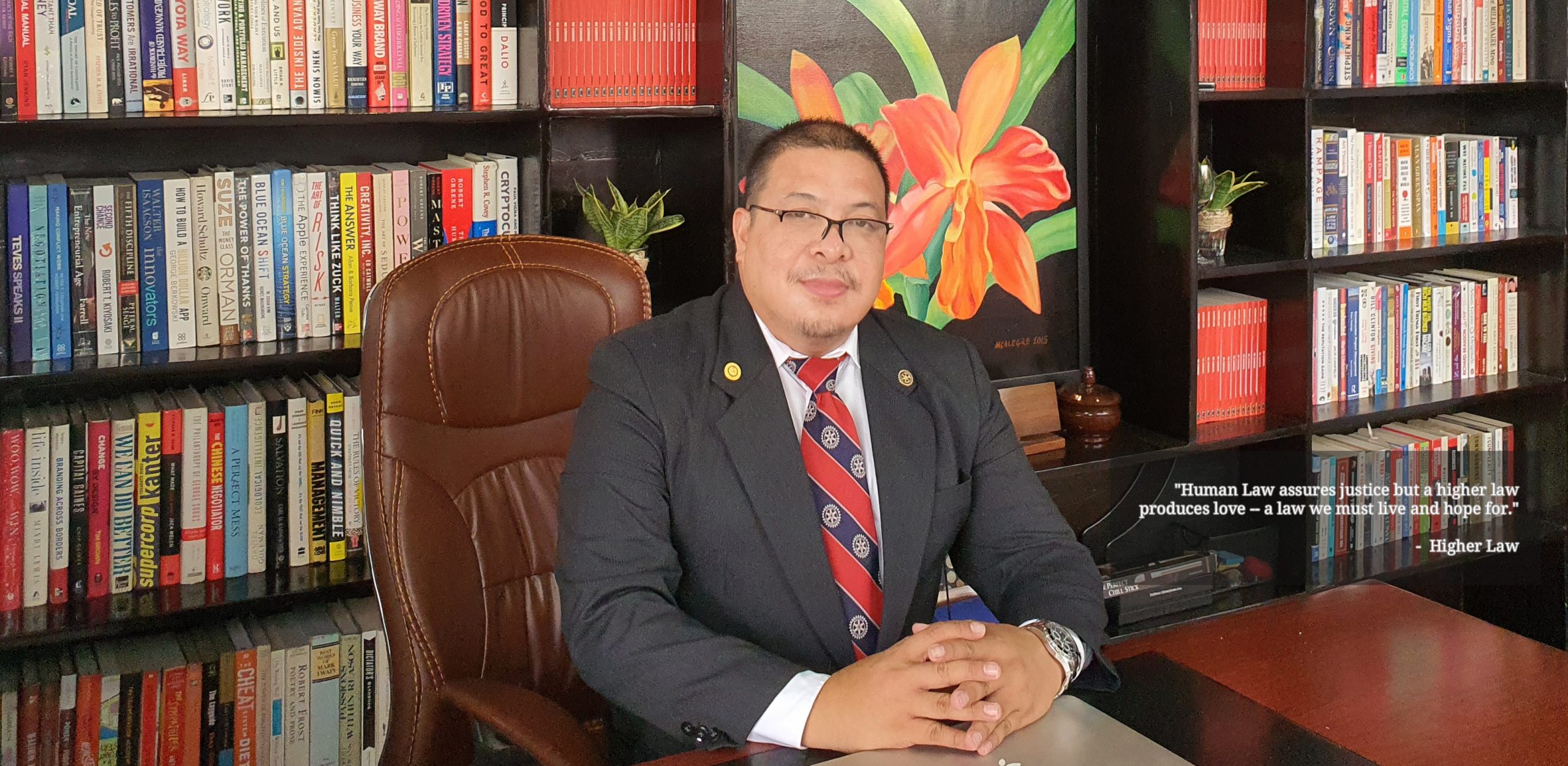
Higher Laws
Articles and Essays
When Women Wear RedNovember 2, 2020Wearing a dark red rose beaded gown, Rabiya Mateo emphatically answered the last two questions which other than her stunning beauty earned her the much coveted crown of Miss Philippines 2020. In the final round, she spoke her words much panctuated by courage and hope, first exemplifying the late senator Meriam Defensor-Santiago as “somebody who puts her heart, her passion into action” and second offering herself “as a candidate . . . carrying hope and as a symbol of light in the darkest time”.
“Stressing the essence of a beauty pageant [having the] power to make a difference,” a lady in red has won the admiration not only from other women but also from every Filipino watching the pageant from their homes, inspirithem amidst of anguish from the onslaught of coronavirus pandemic.
Hashtagging versus redtagging
But not for other women, including celebrities, who sounded ‘red” in their advocacies for women and children’s rights. Not lucky enough for actress Angel Locsin whose sister Ella Colmenares is being red-tagged by Lt. Gen. Antonio Parlade Jr. as having links to communist rebels and as “part of the underground”
Literally wearing in red dress and red lipstick, Angel Locsin retorted with her symbolic online gesture of hashtagging — #NoToRedTagging and #YesToRedLipstick.
Not long after, the said military official warned two other female celebrities Liza Soberano and Miss Universe Catriona Gray for being vocal against gender abuse and supporting an online forum about abuse against women and children.
At first, when Lt. Gen. Parlade warned the outspoken celebrities “not to follow the path of Ka Ella” and advised them to “abdicate that group”, he appeared to be a man of good intention”. However, when he followed it up with the statement that “If you don’t, you will suffer the same fate as Josephine Anne Lapira . . .” his motive is now being held in suspect; his reason now collides with different colors of interpretations.
By pivoting on the statement that he had nothing against women’s rights but he was against Gabriela and by insisting that his was taken “out of context.” may not altogether spare Lt. Gen Parlade from a perception the he is red-tagging the female celebrities. Even if he said that the camp of Liza Soberano thanked him for giving such warning, apparently it was perceived by many as not coming from a protective military official but it was designed to bring a chilling effect not only to the female celebrities but to other Filipinos, women and men alike, who legitimately espoused similar advocacies.
Tactical publicity over legality
At a glance, it made a little sense because by associating Ella with her celebrity sister Angel Locsin, it is easier to raise the level of anti-communist propaganda in the people’s mindset. But when Lt. Gen. Parlade shoved the mes of Liza Soberano and Catriona Gray to the center stage of media platform, the first end of the link is gradually losing its connection, much less its grip to the other end.
It did not make sense at all except if we will assume that his move was not more of enforcing a law than employing a tactical publicity. With his wit and eloquence, it not fair to pass judgment on the reasonability of Parlade’s interpretation of Anti-terror Law. For sure, he knows the law but at this stage of the game, tactical approach matters more than a legal one. Tactical because by putting even a mere semblance of red on women celebrities’ political stance, it is expected to trigger public attention and, as it was unfolding, it has reddened the space virally both in social and traditional media.
Reasonable link between social advocacy and public safety
But what’s wrong with wearing red, literally or ideologically? Where in a democratic space and free society could any woman be wrong -reg-tagged – when she speaks of her rights and support the welfare of her gender and children? How can a reasonably minded person conclude that by supporting the rights of women and children and sharing progressive view on some social issues with the left, one becomes a terrorist.
More than ascribing colors within the ideological spectrum; more than a tactical or political maneuvering; and more than a mere wave of bashings from netizens, any form of red-tagging or any daring act of linking some women to reds deserves a closer scrutiny. It does not only require an imaginary way of connecting the dots but it demands an intervention of reason based on the constitution and existing laws.
In connecting the links between the female celebrities and the communist organization, Lt. Gen. Parlade must strike a balance by creating a reasonable link between advancing social advocacy and ensuring public safety. We must be mindful that only when “it is intended to cause death or serious physical harm to a person, to endanger a person’s life or to create a serious risk to public safety that it becomes an act of terrorism.”
Especially so when it is made clear in anti-terror law that “advocacy, protest, dissent xx creative, artistic and cultural expressions or other similar exercises of civil and political rights are not one of those considered acts of terrorism.” It simply means that as long as it within the parameters of non-violent activism, it is covered by the mantle of protection of freedom of speech, expression and even assembly enshrined in the constitution.
Winning tactic turning into a losing crusade
An impetuous deductive reasoning (Liza Soberano and Catriona Gray support or share the activist view and advocacies of Angel Locsin who is a sister of Ella; Ella is a member of Gabriela; Gabriela is a communist organization; Ergo, Liza Soberano and Catriona Gray and Angel Locsin are communists.) may not only pose danger to their lives but it will put restraint upon the freedom expression of all citizens who would simply express their views on any matter of utmost social concern or political significance.
In making such association with the reds, it is incumbent upon Lt. Gen Parlade to invoke an applicable law, carrying with him a verifiable and credible set of evidence coupled with a firm resolve to file cases in the court of law, not a mere rhetoric and empty sloganeering lodged in a social media forum.
Besides, this kind of political gesture may undermine the real essence of anti-terror law and its enforcement may be put to further judicial test. Truth be told that as it was being enacted and signed into law, it had met with a wave of public disapproval followed by more than a dozen of petitions before the Supreme Court. Thus, by reddening the gender space through the celebrities, anti-terror law may encounter a downside of popularity and most likely, it would suffer a fate of unacceptability at the doorstep of the entire Filipino household. An otherwise presumably winning tactic of harping on women celebrities would turn into a losing crusade against terror as well as insurgency.
Baby River signifies a red flag
So much with romanticizing with color red, let’s get serious on the issues on women and children, otherwise, we will face again a sad reality portraying a mother detainee in handcuffs, who could not hug her child but only touched the glass of a coffin in tears, saying his last goodbye to her three-month old baby River who died of acute respiratory distress syndrome and was buried in her grave.
What kind of society we are creating if we cannot attend the needs and respect the rights of poor childen and women, even in detention? What happened to the long standing tenet that those who have less in life must have more in law”?
When women wear red, it signifies a red flag – a wake up call for us all.
[...]
Read more...
What Lies Beneath Survey Results?October 12, 2020Disbelief is what critics felt over sustainably rising approval rating of President Duterte in a recent Pulse Asia survey. Topping over his closest political rival VP Leni Robredo, the president gained 91% for both performance and trust rating. Tailing him are his close allies Senate President Vicente Sotto III and Speaker Alan Peter Cayetano. And maybe due to limited awareness with the judiciary, the Chief Justice did not bode well with the approval rating survey.
The roots of skepticism
The underlying basis of skepticism may stem from the roots of random origins.Among the firsts are numbers and duration. The first of layman’s impression is how on earth can a disproportionate number of 1,200 participants for a very short span of time — September 14 to 20—reflect the entire sentiments of 61 million voters in the Philippines? Of course, Pulse Asia could easily debunk the skeptics not only with its scientific methodology but also its showing of accuracy and reliability of the number of surveys in previous years.
However, cynicism has the reason to persist in the light of the quality of response by the administration to the challenges of pandemic crisis for the past seven months. As we are seeing, the coronavirus incidents continue to plague the country surpassing the 300,000 mark, ranking the Philippines among the world’s top 20 countries of having the most number of coronavirus cases. To many, it may indicate inadequate response if not a dismal failure to slow down the corona outbreak.
Malacañang was quick enough, though, to defend the high approval rating with a litany of efforts being undertaken. It took pride with the passage of “Bayanihan to Recover as One” which paves the way towards recovery programs, economic stimulus packages, and financial aid to displaced employees and to other informal sectors. It is not to mention other capability-building measures and response initiatives to fight coronavirus.
But a big question that craves for a credible answer is: how did the allegations of massive corruption against Philhealth executives, escape from the perceptive minds of the survey respondents? Thus, to find contextual answers to the relentless questions over the authenticity and reliability of the survey requires a closer scrutiny on the type of questions themselves.
Is it in the framing of question or the frame of mind?
On one hand, if what was being asked is about the performance of the president and how much trust he deserved to earn, then it appears to be president-centric question. It simply means that the respondents were focused on the president. It is like betting on a horserace. You don’t have to rate your personal strength and qualities. Before you place your bet, you have to rate your horse based on his past performance.
On the other, it may differ in results if the questions are directed towards the respondents themselves. For example, in a “Covid-19 Mobile Survey” by SWS last May 2020, they asked 4,000 participants about the quality of life at the height of corona pandemic. And lo and behold, in stark contrast to the Pulse Asia survey, it was revealed that “83% said their quality of life got worse.” In this case, it is not the horse you’re betting on; it is your own life. You are your own horse. Your response to the survey would come directly from the horse’s mouth, so to speak.
What’s inside the Filipino frame of mind?
If it is not in the framing of questionnaire, let us go deeper in to the frame of mind of the Filipinos.
Historically, we tend to forget and tilt to the feeling of forgiving the blunders of our leaders. But what we can never forget those good things promised or, better still, delivered to us, even halfway. We become appreciative and grateful even the results suggest mediocrity. Even if, for example, there were a lot of complaints related to the distribution of social amelioration fund; even if different issues were mounting over the responses of coronavirus pandemic.
Filipinos also tend to admire leaders who can identify with them – their struggles and aspirations. Even if others may say that not much positive changes in the their lives are unfolding. We patronize leaders whose language we can understand. And we associate with them. We hold up high leaders whom we perceived to be passionate in fighting for our causes. Even if others would say that these are promises in empty shells. Well-entrenched in Filipino mentality are those campaign promises that we romanticize with like to stop corruption, curb criminality and alleviate poverty. Sometimes, we find it hard to separate the shadow from the substance; to distinguish between the devil and the deep blue sea, so they say.
If the responsive efforts of the administration to fight coronavirus, however, unsatisfactory to critics, have trickled down to the masses, then the latter perceive them as acts of good performance, even if others would perceive that what they received were mere leftovers. That mindset creates a positive ripple for scoring performance rating.
Further, the strong condemnation by president Duterte against corruption in Philhealth must have earned and sustained for him with high trust rating. It means that we are holding on his promise of stopping corruption. Enjoying an abundant trust, he will not be dragged into a controversy even if he was the one who appointed the top executive into office. Any allegation of corruption will be exclusively assigned to the suspected culprits as if command responsibility doesn’t matter. This kind of perception insulated him from the controversy that his trust rating remains high.
The equation is simple: If a presidential appointee is embroiled with any anomalous government deals, then he betrayed the president’s trust; ergo he is guilty of breach of people’s trust. Duterte’s trust = people’s trust.
Either a slash or a plus
We have to be mindful, however, of what the future will bring. If the frame of mind of the Filipinos is the underlying element of the whole survey results, then it is subject to changes, either for the better or worse. How can sustainably increasing approval rating be sustained in the coming days will all depend on different but relevant realities in our socio-economic as well as political landscape.
Either a slash or a plus remains to be seen. We are not sure if coronavirus will continue to plague the country and wreck havoc to the lives of the people. That will be a score-changing reality.
Another x-factor is the purse management. Thus, a stronger whip on congress to end the row over speakership is a compelling necessity, otherwise non-approval or reenactment of the budget for 2021 may end up with non-inclusion of most pressing expenditures related to fighting coronavirus. Worse, it may have a backlash on the approval rating when the next round of survey comes.
Continue the favor or change the flavor may depend on any twist of events in the coming days.
[...]
Read more...
Love, the higher lawOctober 8, 2020By Cris Evert B. Lato-Ruffolo
TECHNOLOGY lawyer Manuel C. Gordon, or simply MC Gordon, went beyond understanding human law and embraced the calling to answer a “higher law” in his first book published last year by Far Left Publishing.
In “Higher Law,” MC Gordon went out of the routine that was taken by a man who has been working for one of the country’s largest telecommunications company in nearly two decades.
With 41 articles covering different virtues, “Higher Law” is a sneak peak of the wisdom from the experiences of a man who started as a young seminarian but later on found himself as a lawyer and inspirational writer.
The inspiration came from varied experiences but the idea of a higher law came to him as a 14-year-old buy in San Agustin, Surigao del Sur when he saw a souvenir book of the Ateneo De Cagayan’s College of Law in his cousin’s house.
Two lines in the book read: “Human law assures justice. Higher law produces love.”He never forgot those lines.
MC Gordon was a voracious reader at a young age.There was a scarcity of reading materials for his age so the eight-year-old MC Gordon settled on reading books owned by his grandfather, Lolo Onyo, a town mayor who served for 25 years and whom he described as a frustrated lawyer. Before he even turned 10, he has read books on remedial law, management, human resources and even deeds of sale.
After high school, the young MC Gordon entered St. Peter’s Seminary in Butuan in 1988 for a Bachelor of Arts major in English and Philosophy.In the seminary, he was features editor for the campus paper and wrote one-act plays. It was in the seminary that he discovered his gift of writing.
But with years of reading law books and the lines on human and higher laws embedded in his mind, MC Gordon realized that he wanted to become a lawyer.
He left the seminary in 1991 and on the same year, moved to Cebu take up Political Science at the University of San Carlos. He graduated in 1993 and went on to earn his law degree in 1997. He passed the bar exam in 1998.
On his first few years of practice, he was exposed to hundreds of cases ranging from civil, criminal to labor and administrative cases requiring him to appear in court almost every day in a week.
He joined a telecommunications company in 2002 as its senior legal counsel and handled specialized segments such as legal protection on telecom infrastructures, litigation arising from property conflicts, breach of contract, and cases on telecom frauds and network security.
It was in doing his job as a lawyer that MC Gordon realized that “human law is already well documented. The higher law, which calls for each one to love, needs a lot of self introspection.”
MC Gordon started writing the book in 2007. It took him nine years before he let go of the entire manuscript for printing.
In “Higher Law,” he wrote about peace, patience, humility, service, fatherhood and…love.
“We have several engagements that we forget to examine our inner selves. We are hostaged by technology, by the fast-paced demands of time,” he said of the inner drive that motivated him to write Higher Law.
Writing also became his refuge in times when there were difficult life decisions to make.
“When you speak, you go outward. Writing is about going inward. It goes deeper. It makes you reflect because you have the opportunity to choose your words… the command of the written language will strike your inner being,” he said.
This is the reason why “Higher Law” is more than just a hugot book or a self-help guide. It is a testimonial of a human being equipped with life experiences as a young reader, former seminarian, a man whose heart was once broken and a proud father.
This book was written by a man with vast experience in human law, who saw the need to explore his inner self and share what he learned beyond what the mind can decipher.“You may explore the whole world to find a perfect place. But there is only one place you need to travel into—your self,” he said.
Indeed, MC Gordon writes the truth: “Human Law assures justice but a Higher Law produces Love–a law that we must live and hope for.”
(Note: this article was published on CDN by Cris Evert B. Lato-Ruffolo December 13, 2017 https://cebudailynews.inquirer.net/157377/love-higher-law?fbclid=IwAR0LPegsYrmskmfjHhySnISFs8jJiCLtADLtmw6VBhTV2t9MZd2B59ypQUY )
[...]
Read more...
The Problem With Being “Positive”October 4, 2020The pressing problem of being “positive” is hovering all over the world like a storm mounting from South China Sea, sweeping across Philippine Islands to wreck havoc on the House of Congress. And now, strong and mammoth, it is moving westward to the Pacific, finally finding its landfall on the Whitehouse.
In time of pandemic crisis, it’s either “negative” or “positive”. These opposing words buzz about everyone’s mind on a daily basis, even by the hour. On social media or in the real world — among the close-knit families and small packets of people– hearing either of these opposing words always arouses unsettling anxiety.
It is only this season that being negative would give an once of relief. If positive, however, it would frighten us so chilling to the spine that it would hound us with a fear of death. It is specially so in the Philippines having more than 300,000 tested positive as of the first week of October, the highest number of cases in Asia and still counting.
However, this disturbing duality is also present in other scenarios, tailing behind the notoriety of coronavirus. In some political situations in our country today, what appeared to be positive would sometime come out to be negative later, or vice versa. Thus, it often confuses us that we tend to crave for clarity. A need to put in context every relevant event is compelling so as to yield to a clear understanding of what are unfolding before us.
Time and again, like an eagle’s eye, we need to maintain a sharp gaze on every significant event so as to distinguish a minus from a plus. And determine from its essence whether it is a curse or a blessing. In life, sometimes, we accidentally mistake our right hand for the left and so in following signposts. Maybe because a choice of turning to the left or right will all depend where the center is. Either negative or positive depends where the neutral is.
Come with me to backtrack to the past where our leaders once embraced so negative a stance, now slowly leaning upward into a positive position. In some other occasions, what has been positively affirmed as an agreement is slowly swinging to a downward slope, blurring into negativity. And more in other situations where the interchange of places in the upward-downward trajectory has become commonly perplexing.
Before it was South China Sea; Now it is West Philippine Sea
Read with me president Duterte’s address before the United Nation General Assembly on September 23, 2020 over the Hague ruling. He said “the award is now part of international law, beyond compromise and beyond the reach of passing governments to dilute, diminish, or abandon it.” “We firmly reject attempts to undermine it”, he added.
It came as a surprise departure from his previous approach of negating to enforce Hague ruling against China. Except for a hyperbole that he would ride a jet ski to Spratlys Islands and plant Philippine Flag, the president chose to set aside the ruling and instead engaged into bilateral talks with China to give way to improving economic ties with it.
Positive though it may sound that draws praises even from critics, Duterte’s shift of tone may have some negatively ruffling consequences with China. It may mean jettisoning tons of honey off the ships sailing to our shores through the rough waters of South China Sea. But with US, it may mean changing diplomatic landscape as China bears the brunt of diplomatic tensions with other countries over the issues of trade war, territorial conflicts and pandemic crisis response. Philippines seems to fall in love again with an old friend while we still have to wait and see if falling out with China will unfurl.
By the way, what happened to China’s pledges or loan packages to the Philippines for our bold ‘Build, Build, Build’ infrastructural rollout? Are we expecting delays or accepting denial? Unless we know the real score, we will find it difficult to understand the turnaround on Hague ruling much less to put it in context.
Is it the “Pope” or the “Lord” for housekeeping job in congress?
In the offing is the brewing tension over speakership between Speaker Alan Peter Cayetano and Representative Lord Allan Velasco. What seemed to be falling into place with a positive nod from two parties on term-sharing agreement now seems to be falling apart with negative mood filling in the air.
Who will leave or occupy the podium depends on confluence of factors. Of course, President’s conciliatory role occupies a big part in the equation. Meanwhile, the shakedown may settle down if the incumbent speaker would honor the deal and go down (In fairness, the speaker responded positively by tendering his resignation on the plenary but was negated by congressmen). Or if the contender would agree for a quarter-long extension (I don’t think so because on social media, he had his own version of the term-sharing.) If neither works, it will be measured by how each camp would consolidate powers from different partisan and interest blocs in the house.
However, can we step back and look broadly at the perspective? Lest, we may forget that speakership is given to him who is chosen freely by and among the members of House of Congress. And not by a term-sharing agreement, not sanctioned by existing law much less by the Constitution. Lest, we may forget that under the principle of separation of powers, choosing a speaker is an independent prerogative of the House of Congress. And not by any interference from other co-equal branch of the government.
Housekeeping is not a birthright reserved for the “Pope” or the “Lord”. It behooves the hands of the free-minded and reasonable men and women of the duly elected representatives of the people.
Trump tested positive despite negative attacks
While still railing with an interchangeably confusing connotation, I heard the news that President Trump tested positive for coronavirus. Known for using positive words in his public utterances like ‘smart’, ‘amazing’, ‘tremendous’, to name a few, Trump has to fight the unseen enemy by keeping his air of positivity, ironically hoping for negativity.
The irony of being positive for Trump turned to be doubly negative with his weakening popularity over alleged mismanagement of pandemic crisis response. Not to count poll survey showing Trump rearing Biden’s score, it is even more aggravated by his negative performance in recent presidential debates. As many as the interruptions were during the debate, so will be the days of interruptions on his campaign sorties towards election day.
But who knows being positive of the virus might offer a twist if it appeals to the sympathetic votes of the American electorate, turning a negative perception into a solidly positive electoral support. But Joe Biden’s camp is quick enough to forestall the antidote by taking down all negative ads against Donald Trump.
Sometimes, it is hard to find out what it brings to us—negative or positive. It is even harder if it is a bane or a boon. But the hardest is how to identify the difference.
[...]
Read more...
Give ABS-CBN A Franchise. And Promote Free Enterprise and Free PressJuly 19, 2020So much have been said about the denial of ABS-CBN’s application for legislative franchise.
Other than virtually watching at random in some congressional hearings, I also read TWG Report chaired by a good friend Cong. PJ Garcia. I must say, the report with recommendations appeared to be fair and sounded valid.
Not delving yet so much on the merits but more on the writing style, I posted on his FB page, “Good evening Cong PJ! Reading your TWG Report, I can’t help but convey my warmest congratulations for a superbly written report. This will surely come down in history as a monumental piece of legal literature on legislative franchise”.
However, after closely examining the TWG Report in context, I spared a little reservation with regards to the denial of the application. May I park a question for deeper discernment:
Is it really necessary that the application must meet an outright denial?
Denial may not be harsh because legislative franchise is mere a privilege, but it may be a legislative move of last resort if there are still rooms available for viable solutions. It may deserve a second look and to some extent be reconsidered and granted.
Who knows our legislators may be able to navigate through the waters of legislative creativity in having ABS-CBN’s franchise be approved or at this time, having been denied, be reconsidered or granted if applied anew.
My fervent hope for ABS-CBN to remain on air is hinged on the most compelling issue of vital importance — plight of more than eleven thousand workers, talents, vendors, independent contractors affected by ABS-CBN shutdown. This matter deserves a balanced and fair treatment with resulting benefits not only to the employees but to all stakeholders.
My two cents worth is simple.
Ask for reconsideration of the denial of ABS CBN’s franchise or apply it anew with proposed modified OWNERSHIP STRUCTURE of the company.
Offer a bulk of shares of stock for ownership to more than 11 thousand affected individuals whose payment of subscription may be on terms for a period of time, deductible from their salaries or contract fees.
The beauty of this solution is the dual impact it may bring to FREEDOM of the PRESS and FREE ENTERPRISE.
It will not only completely dispel the claim of violation of FREEDOM of the PRESS but also promote FREE ENTERPRISE among the workers, talents, vendors and contractors of ABS-CBN business ecosystem.
While we are saving the livelihood of 11 thousand Filipino individuals and their families, we will also produce 11 thousand new entrepreneurs, thus helping our economy especially in this time of pandemic crisis.
While 11 thousand Filipino individuals will partake of ownership under this new company structure, they will develop a sense of ownership working and delivering services with gusto. And in broader sense, a national pride being part of a mass media enterprise of 100% Filipino ownership.
For other issues, the legislative franchise, if granted, being in the nature of law may contain transitory or conditional provisions for ABS-CBN to make amends of the previous transgressions, either in legal or moral aspect such as among others, the issues on citizenship, taxes, labor practices, PDRs, and other violations cited in the TWG Report.
Let it be part of our healing and reconciliation!
[...]
Read more...
Lighter Laws
Daily Quotes and Poetry
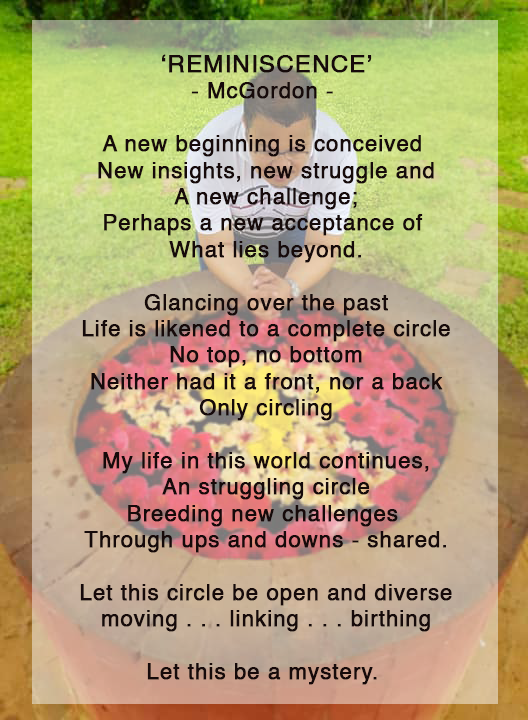
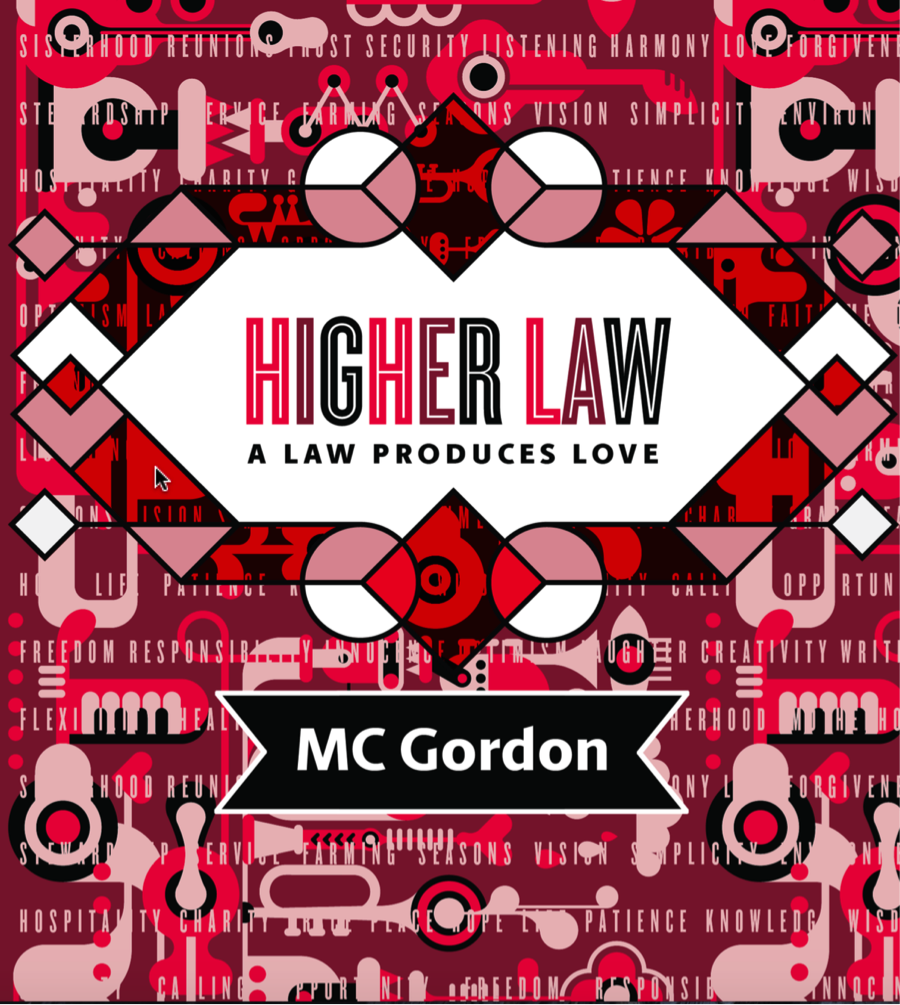
Higher Law
Higher Law is a collection of essays anchored on recollection of different life’s episodes. It consists of a series of responses to daily occurrence of human realities, unfolding in a most surprising twist of events. The author took it upon himself with enchantment to register the bits and pieces of human experiences and divulged them through dramatic reenactment in a literary way.


